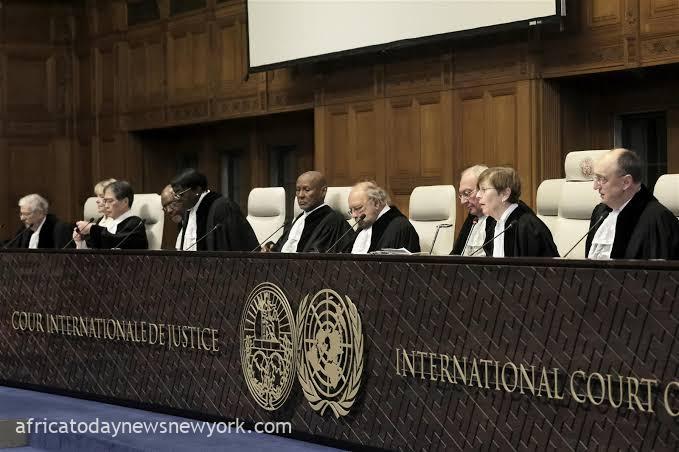The German government strongly rebuffed accusations at the UN’s highest court, categorically denying claims of “genocide” by Israel in Gaza and cautioning against the “political instrumentalization” of such charges.
According to government spokesperson Steffen Hebestreit, Israel asserted its right to self-defense, characterizing the October 7 attacks by Hamas as “inhuman.”
‘In light of German history and the crimes against humanity of the Shoah, the German government is particularly committed to the (UN) Genocide Convention,’ signed in 1948 in the wake of the Holocaust, Hebestreit said.
He said the Convention marked a “central instrument” under international law to prevent another Holocaust.
For this reason, he said, ‘We stand firmly against a political instrumentalisation’ of the Convention.
Hebestreit acknowledged diverging views in the international community on Israel’s military operation in Gaza.
‘However the German government decisively and expressly rejects the accusation of genocide brought against Israel before the International Court of Justice,’ he said.
‘The accusation has no basis in fact.’
Read also: Gaza War: Israel Rejects Genocide Accusations At ICJ Hearing
He said Germany would intervene as a third party before the ICJ under an article allowing states to seek clarification on the use of a multilateral convention.
South Africa has launched an emergency case at the International Court of Justice (ICJ) arguing that Israel stands in breach of the UN Genocide Convention.
Judges are being petitioned by Pretoria to enforce an immediate cessation of Israel’s Gaza campaign, a direct fallout from the October 7 Hamas attacks, which, according to Israeli figures, resulted in 1,140 fatalities.
Gaza’s Hamas-controlled health ministry reports that Israel’s offensive has resulted in the tragic loss of at least 23,469 lives, with the majority being women and children.
Dismissing the case as unfounded, both Israel and its ally, the United States, have pledged a resolute defense in response.
Grounded in its historical responsibility for the Holocaust, Germany has positioned the defense of the state of Israel as a foundational element in its foreign policy.
Berlin’s perspective has evolved, with increased criticism of the Israeli campaign in Gaza and its repercussions on civilians. Foreign Minister Annalena Baerbock emphasized the urgency for combat to be “less intensive” and for a surge in aid flows.
